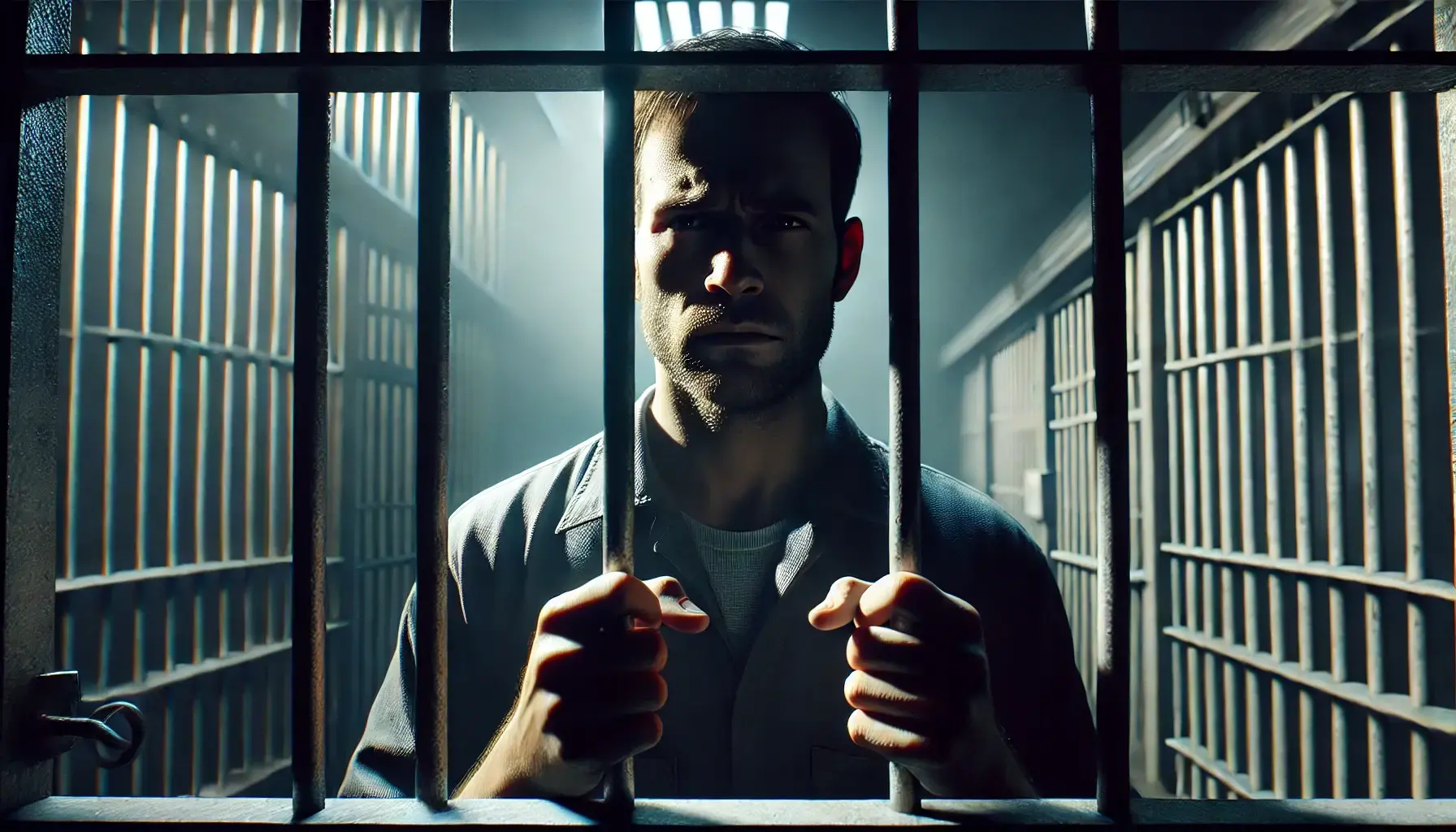Can You Go to Jail for Accidentally Killing Someone in A Car Accident?

Legally reviewed by:
Daniel Smith December 17, 2024
The thought of accidentally causing someone's death in a car accident is harrowing. Unfortunately, these incidents do happen, and they can result in severe legal consequences for the driver at fault.
While not all accidents involving a fatality led to jail time, the circumstances surrounding the crash and the laws in your state can greatly impact the outcome. Understanding the legal framework, potential consequences, and the importance of legal representation is crucial for anyone involved in such a tragic event.
In this article, we discuss what vehicular manslaughter is, the potential legal outcomes, and why legal advice is essential.
What is Vehicular Manslaughter
Vehicular manslaughter, also known as vehicular homicide in some jurisdictions, refers to causing someone’s death through negligent or reckless driving. It does not require intent to harm but instead focuses on the driver’s actions leading to the fatal accident.
The laws governing vehicular manslaughter vary by state but typically fall into two broad categories:
- Negligent Vehicular Manslaughter: This involves a driver’s failure to exercise reasonable care, such as running a red light, speeding, or failing to yield.
- Gross Negligence or Recklessness: In this case, the driver’s actions demonstrate a blatant disregard for the safety of others, such as driving under the influence, texting while driving, or engaging in street racing.
Penalties for vehicular manslaughter can range from fines and probation to lengthy prison sentences, depending on the severity of the negligence and, consequently, whether it is charged as a misdemeanor or a felony.
In California, Cal. Pen. Code § 192(c)(2) provides that vehicular manslaughter may not amount to a felony if it was committed without gross negligence, and gross negligence is subsequently defined in § 192(e)(2) to include engaging in a motor vehicle speed contest or speeding at over 100 miles per hour.
Even in states that charge all acts of vehicular manslaughter as felonies, sentences may differ depending on the circumstances. Massachusetts is a great example of this.
Mass. Gen. Laws ch. 90, § 24G provides in paragraph (a) that operating a vehicle recklessly or negligently to cause the death of another person will attract a state prison term spanning between 2½ years and 15 years or a fine of not more than $5,000, or imprisonment in jail or a house of correction for not less than 1 year nor more than 2½ years.
Recklessness is defined under paragraph (c) as a conscious disregard for a substantial and unjustifiable risk that endangers the lives or safety of members of the public.
Meanwhile Mass. Gen Laws ch. 90, § 24G(b) provides that in the absence of recklessness, the penalty for vehicular homicide will be imprisonment in a jail or house of correction for not less than 30 days, but not more than 2½ years, or a fine not less than $300 but not more than $3,000, or both.
What Happens If You Are in This Situation?
If you are involved in a car accident that results in someone’s death, the legal process begins almost immediately. Here’s what typically happens:
- Police Investigation: Law enforcement will arrive at the scene, collect evidence, interview witnesses, and determine whether any laws were broken.
- Charges Filed: If the investigation suggests you were at fault and your actions meet the criteria for vehicular manslaughter in that state, charges may be filed against you.
- Court Proceedings: You will be summoned to court, where the prosecution must prove beyond a reasonable doubt that your negligence or recklessness caused the fatality.
- Potential Arrest: Depending on the circumstances, you could be arrested on the spot or after the investigation concludes. Legal representation at this stage is critical to ensure your rights are protected.
Potential Legal Outcomes
The consequences of accidentally killing someone in a car accident depend on several factors, including the severity of your negligence, your driving record, and state laws. Here are some potential legal outcomes:
Criminal Penalties
Criminal penalties may include
Jail or Prison Time
In cases of gross negligence or reckless behavior, a conviction for vehicular manslaughter can result in more significant jail or prison sentences.
For example, Georgia’s Ga. Code § 40-6-393 provides that committing vehicular manslaughter while under the influence of alcohol or other substances could attract up to 15 years in prison, but if vehicular manslaughter results from the commission of other offences like failure to yield or running a red light, prison time would be maximum of one year.
Fines and Restitution
Financial penalties can be steep, ranging from thousands to tens of thousands of dollars. Courts may also order restitution payments to the victim’s family.
Probation
In less severe cases, a judge may sentence you to probation instead of jail time. This typically comes with strict conditions, such as attending driving courses or avoiding further traffic violations.
Civil Liability
In addition to criminal charges, you may face civil lawsuits filed by the victim’s family. Civil liability aims to provide financial compensation for the damages caused by the accident.
Unlike criminal cases, which focus on punishment, civil cases are about restitution. Key aspects of civil liability include:
Wrongful Death Claims
The victim’s family can file a wrongful death lawsuit seeking compensation for medical expenses, funeral costs, lost income, and emotional suffering.
Pain and Suffering
Courts may award damages for the emotional pain and suffering the victim’s loved ones endured. Most states recognize the concept of Negligent Infliction of Emotional Distress (NIED), which can allow family members to bring claims solely for emotional distress if they had a close relationship with the deceased.
In Portee v. Jaffee, 84 N.J. 88, 417 A.2d 521 (N.J. 1980), the New Jersey Supreme Court established that to successfully bring an action for NIED in the state, a marital or intimate relationship must have existed between the deceased and the claimant, the claimant must have witnessed the death, and the claimant must have suffered severe emotional distress as a result. While these requirements are usually similar, they may differ slightly across states.
Punitive Damages
In cases involving gross negligence or reckless behavior, the court may impose punitive damages to deter similar conduct in the future.
It’s important to note that civil liability does not require proof “beyond a reasonable doubt” as in criminal cases. Instead, the other party must simply present evidence that is more convincing, making it easier for the plaintiff to prevail.
Civil lawsuits can result in significant financial obligations, particularly if insurance coverage is insufficient. Having adequate liability insurance and seeking legal advice early can mitigate the financial and legal risks.
License Suspension or Revocation
Accidents involving fatalities often lead to the suspension or permanent revocation of your driver’s license. This can severely impact your daily life and career.
Impact on Insurance
Your car insurance rates will likely skyrocket, and in extreme cases, your insurer may drop your policy altogether. Additionally, insurance may not cover all damages, leaving you personally liable for significant financial costs.
Why Legal Advice is a Must
Navigating the legal and emotional aftermath of a fatal car accident can be overwhelming. Having experienced legal counsel is essential to protect your rights, build a strong defense, and potentially minimize penalties. Here’s why legal advice is indispensable:
Understanding the Charges Against You
An attorney can explain your charges, whether they fall under misdemeanor or felony vehicular manslaughter. This understanding is critical to preparing a defense and exploring plea options.
Building a Defense
Your lawyer will investigate the accident thoroughly, gathering evidence such as:
- Traffic camera footage
- Eyewitness testimonies
- Vehicle damage analysis
- Expert opinions on road conditions and visibility
This evidence can help challenge the prosecution’s claims and demonstrate that the accident was not due to gross negligence or recklessness.
Negotiating Plea Deals
In some cases, your attorney may negotiate with the prosecution for reduced charges or penalties, especially if mitigating factors are present, such as a clean driving record or the victim’s partial fault.
Navigating Civil Lawsuits
In addition to criminal charges, you may face a civil lawsuit. An attorney can represent you in court or negotiate settlements with the victim’s family to minimize financial impacts.
Ensuring Emotional Support
Beyond legal representation, attorneys often work with support networks to help clients cope with the emotional toll of being involved in a fatal accident. Having a compassionate advocate on your side can make a significant difference during this difficult time.
How The Accident Helpers Can Help
Accidents resulting in fatalities are tragic for all parties involved, but understanding your legal rights and responsibilities is crucial. With professional legal advice, you can navigate the complexities of the legal system and focus on rebuilding your life after the incident.
And if you are not sure about how to get the best possible attorneys for your case, don’t worry, The Accident Helpers can help. At The Accident Helpers, we connect you to the most brilliant and experienced car accident lawyers in your city, ensuring that they are very familiar with state laws and court procedures.
All you have to do is contact us, give us the facts of your case, and we will immediately begin to search for the best lawyers for you. And we provide you with options, so you can select the best fit attorney for you.
The best part is our services are completely free. So contact us today!




